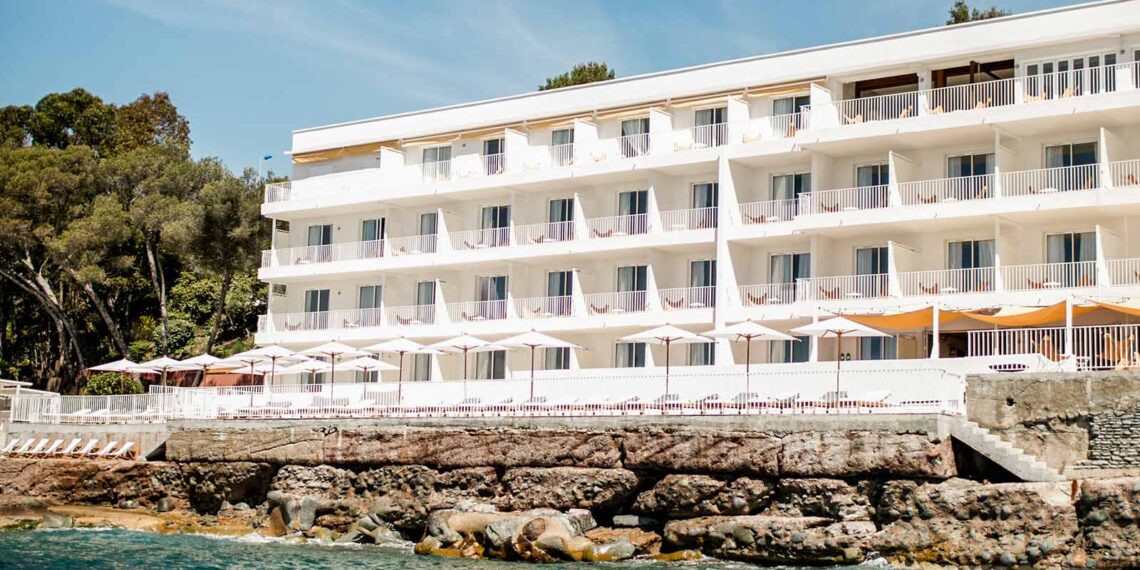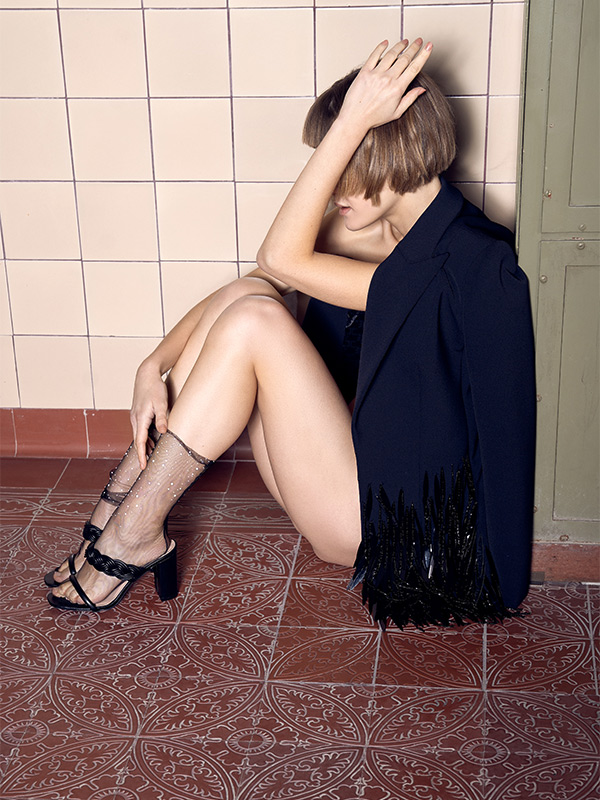The scent of lavender and rosemary is in the air, along with the salt that the waves carry to the coast, where the Hotel Les Roches Rouges is surrounded by rocks, pines and tamarisk trees. Here you can feel the lightness of Provence and recognize the beauty of the Riviera, which together ensure that you always feel as comfortable as at home in this place.
FACES: How did you get into the hotel industry?
Eric Darde: I left school without any qualifications when I was still very young. Nevertheless, I knew that I wanted to achieve something in life. At 17, I already had the ambition to be successful and the idea of working as a sommelier, bartender or waiter. Later, I even became a hotel manager at the age of just 29! I was full of enthusiasm and drive and always wanted to learn new things and work in a team. This ultimately helped me to make a career within a large international hotel group and eventually become the director of 24 hotels. However, my entrepreneurial spirit drove me even further, and so I built up a collection of luxury hotels together with others. Today I even own my own brand: Beaumier.
F: Beaumier also owns the hotel Les Roches Rouges on the south coast of France. How would you describe your hotel in one sentence?
ED: Le Grand Bleu on the Côte d’Azur.
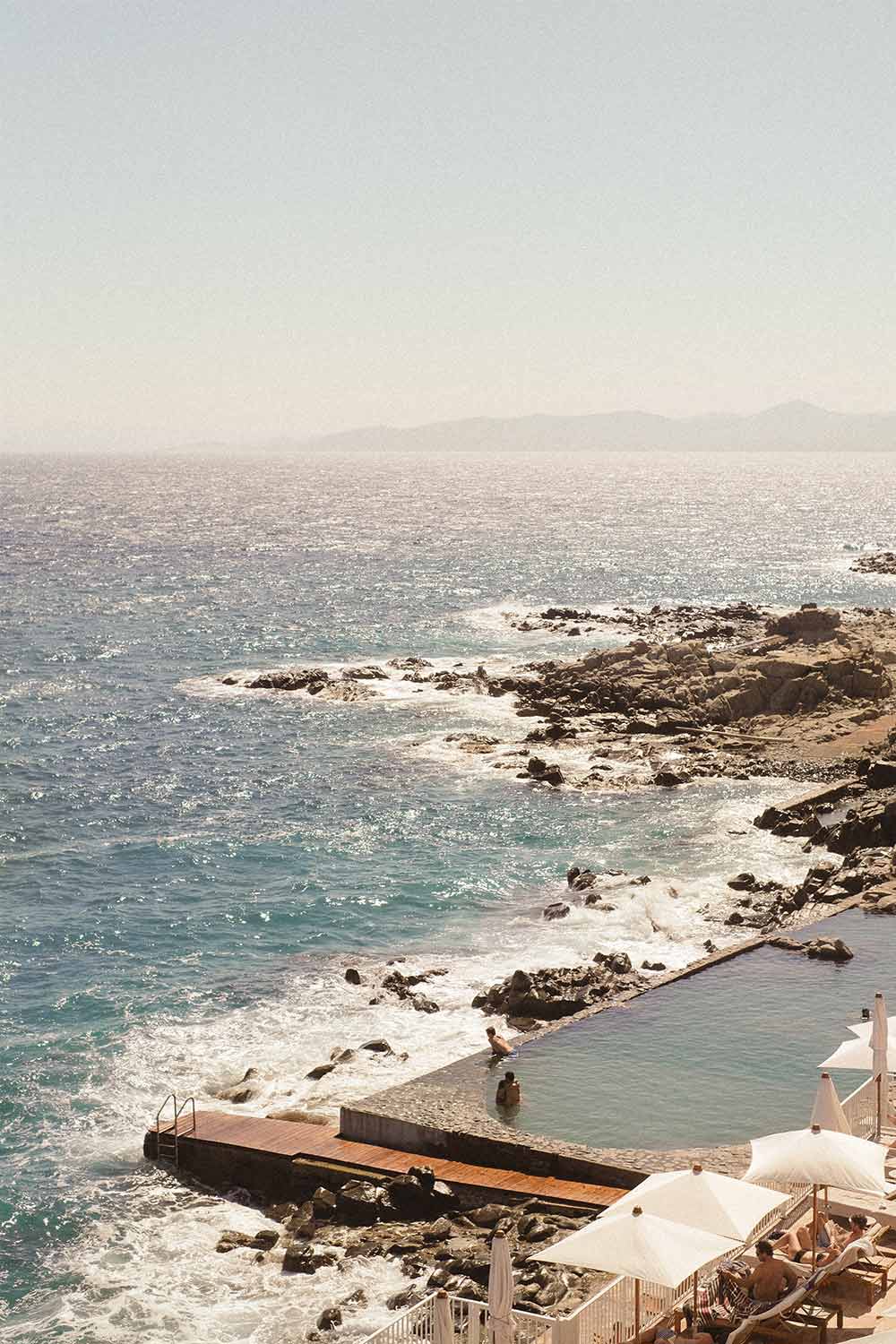
About the development of the hotel and its inspiration
F: Take us through the development of your hotel from the idea to the finished resort!
ED: Every hotel is the result of a meeting of talents and their values. When it came to revitalizing Les Roches Rouges in Saint-Raphaël in 2015, they all came together: Charlotte de Tonnac and Hugo Sauzay, the architects of Festen, Antoine Ricardou from Atelier Saint-Lazare, Gwenaelle Grandjean and Stan Alaguillaume, the gardeners from Landscap, as well as everyone from our team, from the brand manager to the head chef. That was a very impressive collective. With Beaumier, I attach great importance to giving each project a philosophy and vision. We do not invent stories, but are inspired by the natural surroundings of our locations, the architecture of the buildings and the heritage of the places. Each place tells a story that is filled with experiences so that it appeals to the heart and mind of our guests.
F: What was your inspiration for Les Roches Rouges?
ED: The hotel is located between Saint-Tropez and Cannes directly on the coast in Saint-Raphaël in the nature reserve of the Esterel massif. Incidentally, its color gives the hotel its name. When you drive up to the hotel, you are overwhelmed by the landscape, nature, the sea and the few houses on the Côte d’Azur before you even see the hotel, which stands on a small cliff. Nature and the breathtaking view of the sea are complemented by the building from the 1950s in the style of the French Riviera. At that time, people turned away from traditional forms and focused on new materials such as concrete, steel and glass – this marked the rise of modernism in architecture. This is complemented by the heritage of the Côte d’Azur, which celebrates life and a culture that holds art, wine, agriculture, the Mediterranean and cuisine in particularly high regard. We set ourselves the goal of creating an environment that showcases the best that this region has to offer. To this end, we joined forces with artists, winegrowers, fishermen and other local people who enriched our project.
F: A huge quiver of inspiration that came together! How did you ultimately implement them?
ED: Our architect duo Hugo and Charlotte emphasized the clear lines of classic architecture on the Côte d’Azur. Polished concrete, aged oak wood, terracotta ceramics – all the materials used are typical of the south of France. Azure blue, pure white and red ochre are the guiding principles of this hotel, which blends harmoniously into the coastal landscape. The idea: to live with your feet in the water. That’s why we delight our guests with a natural seawater pool and the opportunity to swim directly between the rocks. All fifty rooms are flooded with light and offer this magnificent view of the blue sea. Their contemporary aesthetics, understated luxury and minimalist furnishings reflect the Riviera way of life. This closeness to the elements is reflected in the furnishings – for example in the wall lamps made of Alpilles stoneware by Guy Bareff or in the charming color blocks by Rosemarie Auberson and the concrete armchairs by Willy Guhl. The result is stylish and elegant, both classically Côte d’Azur and contemporary.
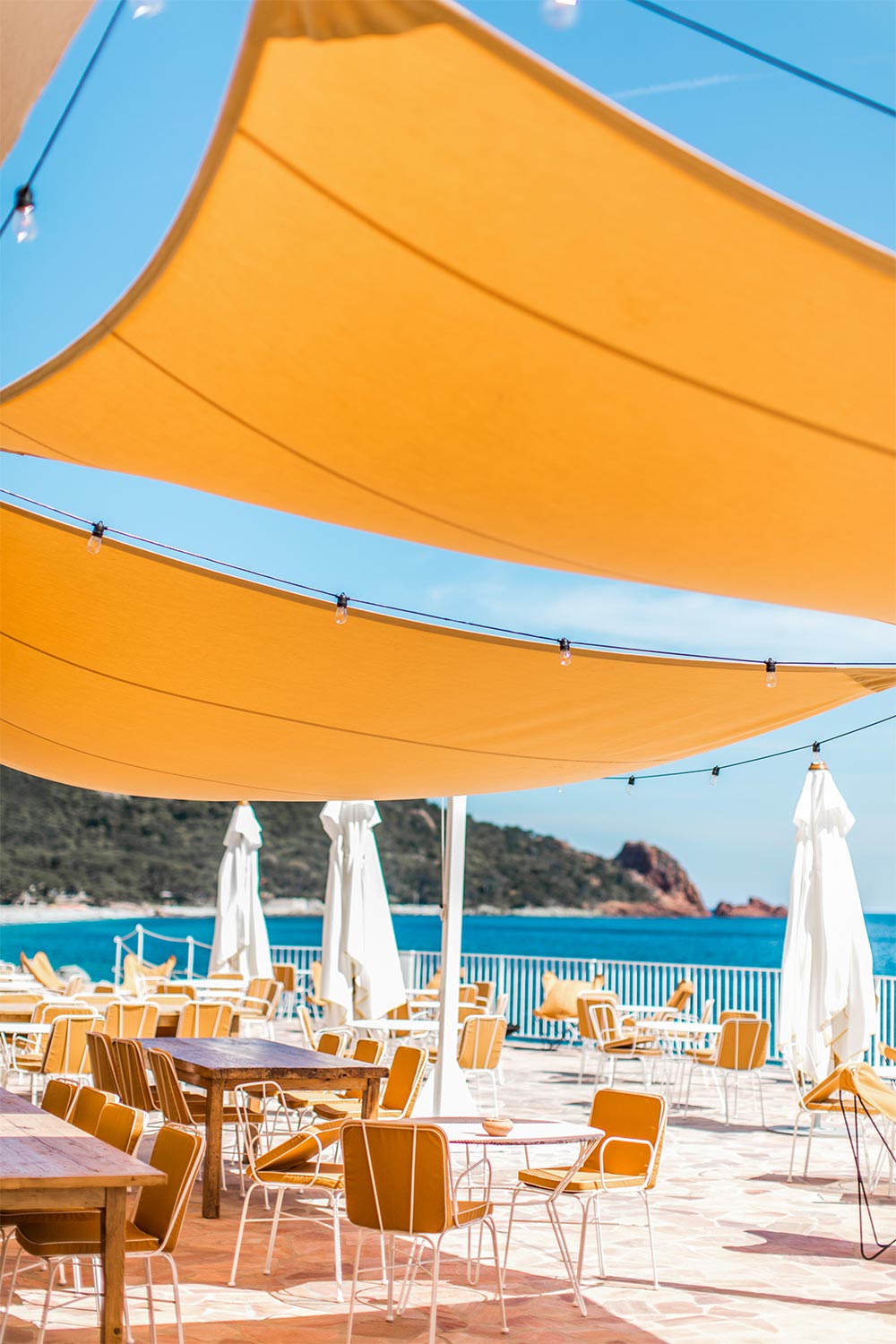
A dream of Provence
F: The garden is also a tribute to Provence.
ED: We didn’t want to create an ornamental garden, but a real garden that would tell the story of the Mediterranean landscape. Rosemary, cistus, myrtle and lavender are joined by many flowers. Although they flower less in summer, the essential oils help the Mediterranean plants to survive the drought – and you can smell the fragrance of these oils. The salt water makes it difficult for plants to live by the water, which is why we have tried to use only plants that grow on the coast. We have four different gardens in Le Roches Rouges. By the sea, amidst the rocks, is our wild flowering garden with mainly small plants and a wide variety of species, while on the Mediterranean shore is our main garden, which we have equipped with many aromatic plants and herbs. Then there is our pine forest, which we also refer to as our green room – a very flat, enclosed space under the pines where you can read a book completely undisturbed or simply linger in peace. We also have a tropical garden, which is protected from the sea and its salt by the building.
F: Give us three reasons why we should definitely stay at your place!
ED: At Les Roches Rouges, this endless view of the sea is combined with the natural surroundings to create an authentic and exclusive experience. The Mediterranean beach, the view of the Ile d’Or and this modern architecture that blends in almost seamlessly between the pines and tamarisk trees: Anyone who comes to Les Roches Rouges is transported away from the world. These are joined by our Michelin-starred Récif restaurant, La Plage restaurant and various inviting bars. Here, our guests can enjoy Provence, its flavors, smells and sunshine to the full, reflect on themselves, appreciate the time and experience the simple pleasures of a vacation by the sea. At Les Roches Rouges you live outdoors, walk barefoot, take your time, enjoy being with people you love and at the same time take time for yourself to be active or lazy, just as you like.
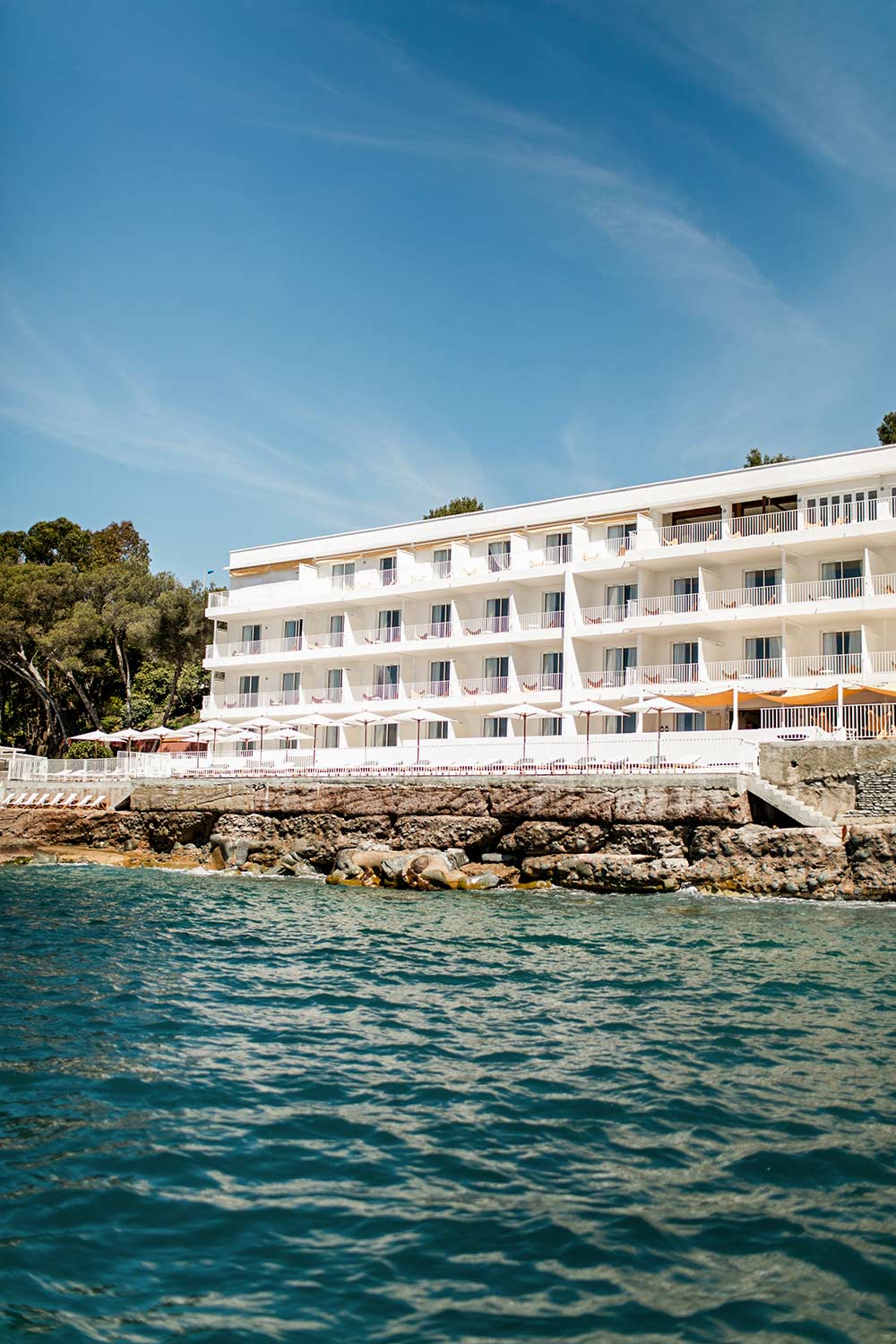
The profession of a hotelier
F: What makes the profession of hotelier so exciting?
ED: The variety! It’s a very creative profession that allows you to create a product that combines design, food and drink into an experience. As a hotelier, you always find new ways to make this experience even more enjoyable for your guests. The profession of hotelier opens the door to the world. This is how you discover new countries, cultures and people. You also brighten up other people’s days – from guests to colleagues, partners and suppliers. Everything always revolves around people. No two days are the same – there is always something to achieve, solve or manage. You learn a lot and develop yourself further in the process – in fact, you become a real jack of all trades! I don’t find anything boring about my job, I really enjoy every aspect of it and this industry.
F: What do hoteliers need to think about that others don’t?
ED: A hotelier has to juggle so many elements at the same time to create magical moments for his guests. So many people are involved in the creation, transformation, execution and delivery – with the hotelier literally acting as the orchestra conductor.
F: What are you worrying too much about?
ED: It is sometimes very demanding to have the passion and ambition to create a legacy for the Beaumier brand and at the same time run a balanced business. However, it is also very stimulating. I sometimes worry that I’m not giving my family the time they deserve and need. However, I am aware of these two aspects, and that is very important for a good balance.
F: What are you like as a boss?
ED: I don’t like the word “boss” – I firmly believe that we all have a common vision and values and view life in a similar way. My role is to exemplify the vision, inspire, lead and create the right environment for my employees so that they can develop to their full potential and we can achieve our goals together. You could describe me as a workaholic who is resilient and generous. My employees are best placed to answer what I am like as a manager, so I asked them without further ado. Attributes such as visionary, open-minded, fair, resilient, passionate, accessible, determined or rebellious emerged. Sometimes it is certainly frustrating with me because I can change my mind, am disorganized from time to time, let my emotions carry me in my decisions and am sometimes stubborn and impatient. But I am happy about this question, because I can think about their answers.
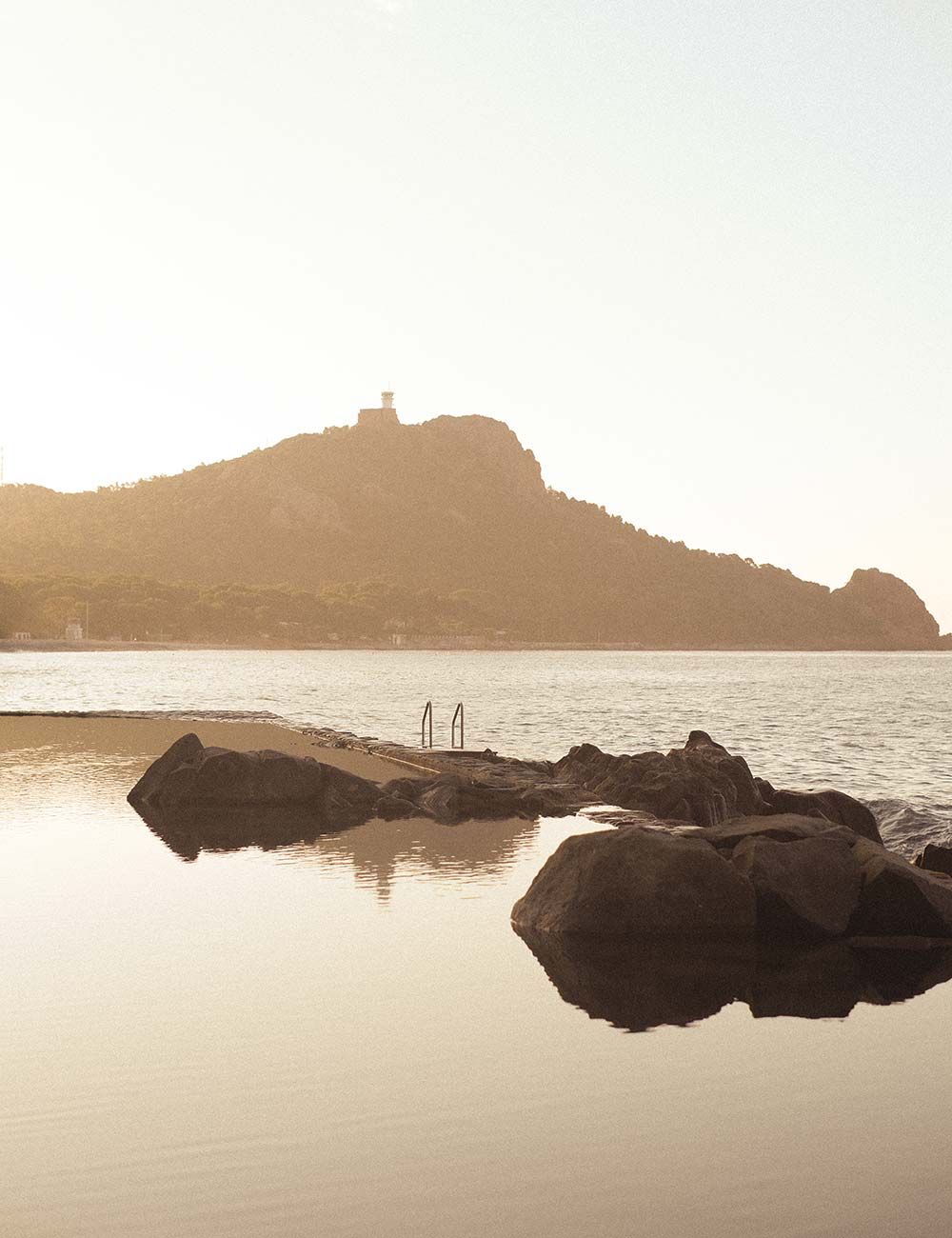
A good host shows generosity
F: What makes a good host?
ED: That’s easy to answer. A good host shows genuine generosity and joy in caring for others.
F: Which guests do you like best?
ED: I like those guests who are hedonists at heart, who like to have fun and appreciate the simplest things in life.
F: What do you dislike in guests?
ED: I can’t stand guests who show a lack of respect, look down on my team and take themselves too seriously.
Genuine hospitality creates emotions
F: What do you expect from your hotel?
ED: We want to offer genuine hospitality by combining authenticity and experiences to create emotions. We want to be seen as the most caring and emotional vacation hotel. My guests must leave the hotel feeling rested, refreshed and having discovered a beautiful part of the world.
F: How have the demands of your guests changed in recent years?
ED: Guests have become much more demanding. They are well-traveled, connected and looking for real experiences and true emotions that align with their values. How we run our hotel and the values with which we do so are more important than ever. Being green and sustainable is now a purchasing decision, and our guests are even prepared to compromise on their travel for the good of the environment. As a hotelier, you have to be the mediator and curator.
F: What story from your everyday life do you absolutely have to tell us?
ED: At Les Roches Rouges there are deliberately no televisions in the bedrooms. We want our guests to really switch off, rest, relax and take time to think, read, explore and enjoy the landscape and the hotel’s surroundings. However, we didn’t know how this decision would be received by our guests – after all, we are a five-star hotel. On the first weekend after the opening, we received such a kind email from one of our guests, which convinced us that we had made the right decision. The gentleman wanted to spoil his wife with a long weekend at Les Roches Rouges and thanked us for not having a TV in their room. This allowed them to spend all evenings talking and reconnecting with each other in their conversations and finding their love again. I was so happy about this feedback and really touched!
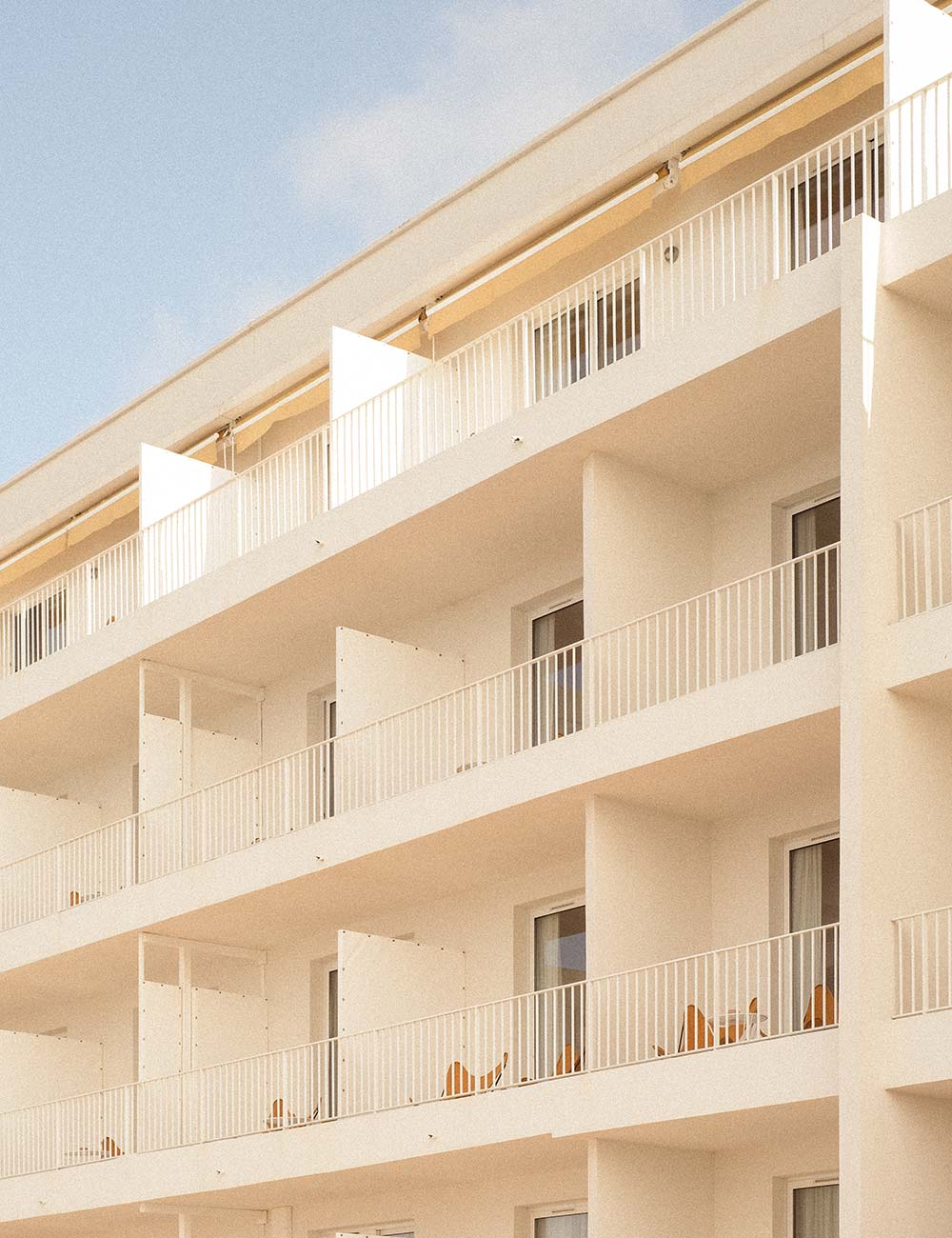
What does a grand hotel need?
F: What do you look out for when you stay out yourself?
ED: I really appreciate craftsmanship and creativity – be it a plate, an object, a work of art, a book, a design… I firmly believe that creativity cannot be criticized, but only respected, as it is always a reflection of oneself. So I only look for authenticity and therefore for good products that are made with care and passion.
F: What distinguishes a good hotel from a great one?
ED: A grandiose hotel scores with its warm welcome for guests, its unique location, its history and the appreciation shown for the design, the raw materials and the materials used. But above all, a great hotel gives you the feeling of being at home. The opposite of this is a bad hotel that shows no personality, conveys a false aesthetic, serves ready meals and has employees who cannot bring their own personality to the table and have only been trained to function as robots.
F: Where is your own bed?
ED: I live in a village in Devon, England. I live in the countryside, ten kilometers from the sea in one of the most natural and beautiful counties in England. I’m French, but after falling in love with a British woman, I decided to move to England with her and live next door to her parents with our four children. I really enjoy the lifestyle here – people are so relaxed and enjoy the sea and the landscape. As far as that is concerned, I’m like my own Beaumier brand: I always need a natural environment, I could never live in a city.
Les Roches Rouges
French Riviera feeling without having to waste precious hours of sunshine on stylish styling? Then off to Les Roches Rouges on the Côte d’Azur between Nice and Marseille. The minimalist architecture and the lovingly tended gardens emphasize the carefree attitude with which you can lie under the parasol and gaze out at the deep blue of the Mediterranean for hours. If your stomach starts to rumble, there’s a beach bistro serving everything from olives and anchovies to honey-roasted apricots, and the Michelin-starred Récif restaurant, where the dishes on the plates and the view of the horizon are the focus of attention.
beaumier.com
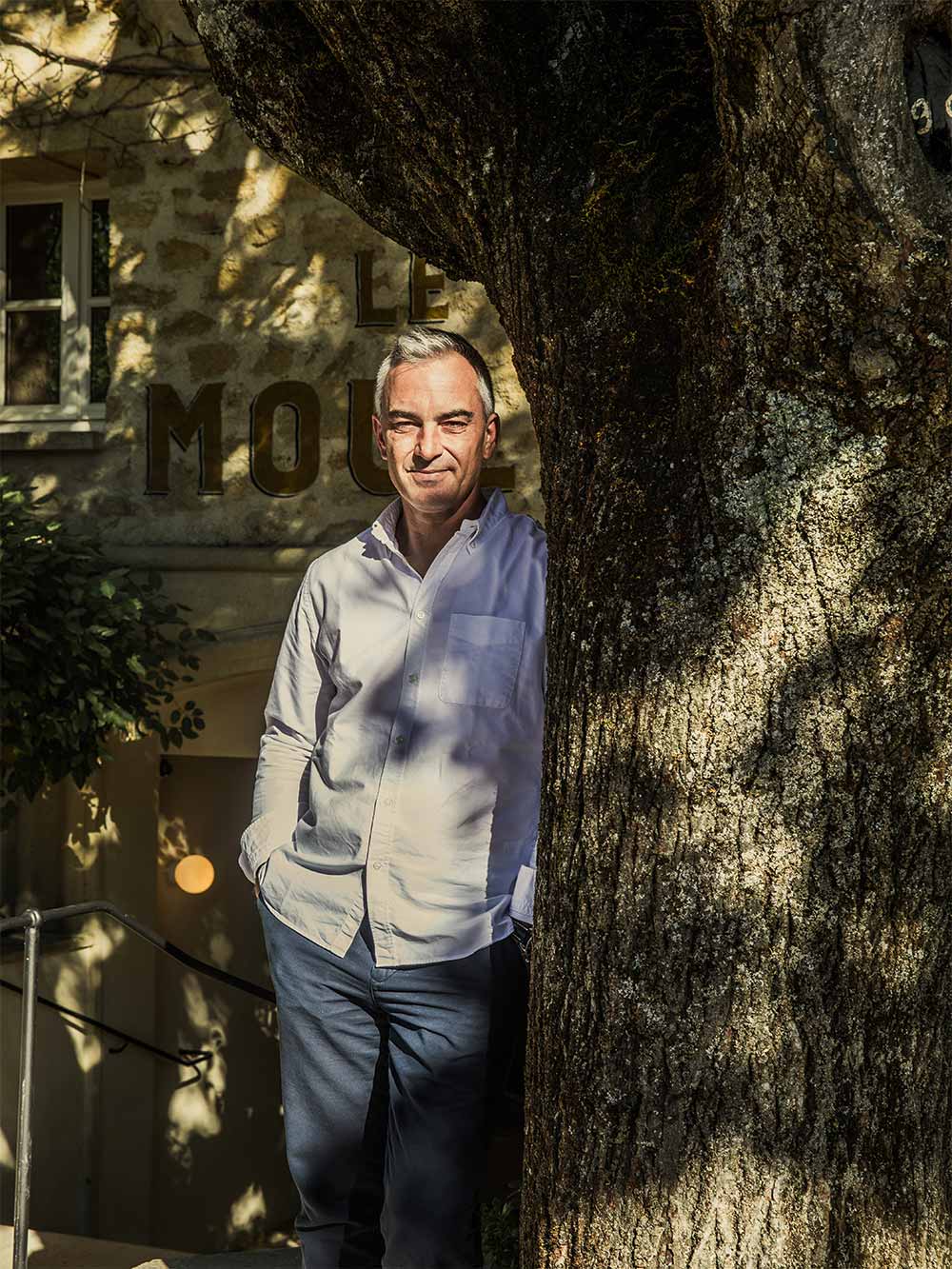
This is what Eric Darde from…
cruise ships:
are too big, there’s too much in one place, and that makes me feel claustrophobic!
Buffet meal:
Less is always more when you are looking for quality.
All-inclusive:
Why not, but it’s not really my thing. I prefer to have the freedom to choose and discover different places and restaurants.
Dogs in the restaurant and hotel:
They are part of the family – so they are always welcome.
Children in the restaurant and hotel:
Children are a part of life. I really enjoy the noise, the liveliness and the hustle and bustle that children bring, because that’s what family life is all about.
Dress codes:
don’t matter to me. Just come in the outfit you feel good in and that makes you happy.
TripAdvisor:
is a good thing and forces everyone to make sure that we keep our promises and satisfy our guests.
OTAs:
are the only platforms that offer consumers all the options available. The disadvantage for our guests is that we are forced to increase prices to cover the costs of these intermediary platforms. If all guests booked directly with the hotels, room rates would be cheaper.
Sharing economy:
absolutely! Especially in our industry, which is essentially a people business.
Sustainability:
must be a way of life! We have a duty of care towards nature and humanity.
Skilled labor shortage:
challenges us and our industry to think differently and adapt. Our industry fits so well with the values of our new generations that I am convinced that this is only a short-term problem.
Fancy beautiful destinations and hotels that are not yet on every bucket list? Click here to go to our travel section.
Teaser photo & photos: © Karel Balas, Benoit Linero, Gaëlle Rapp Tronquit


